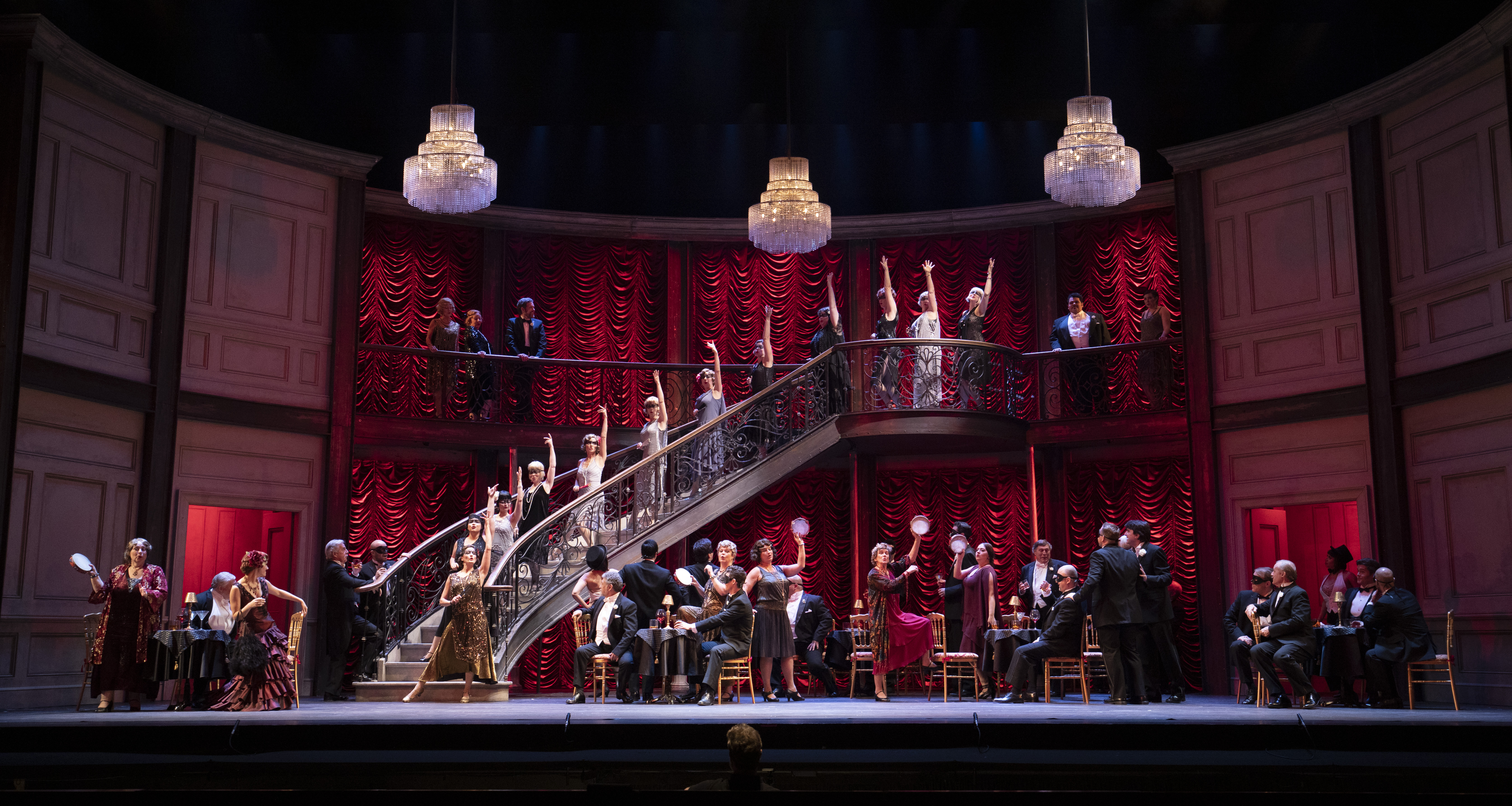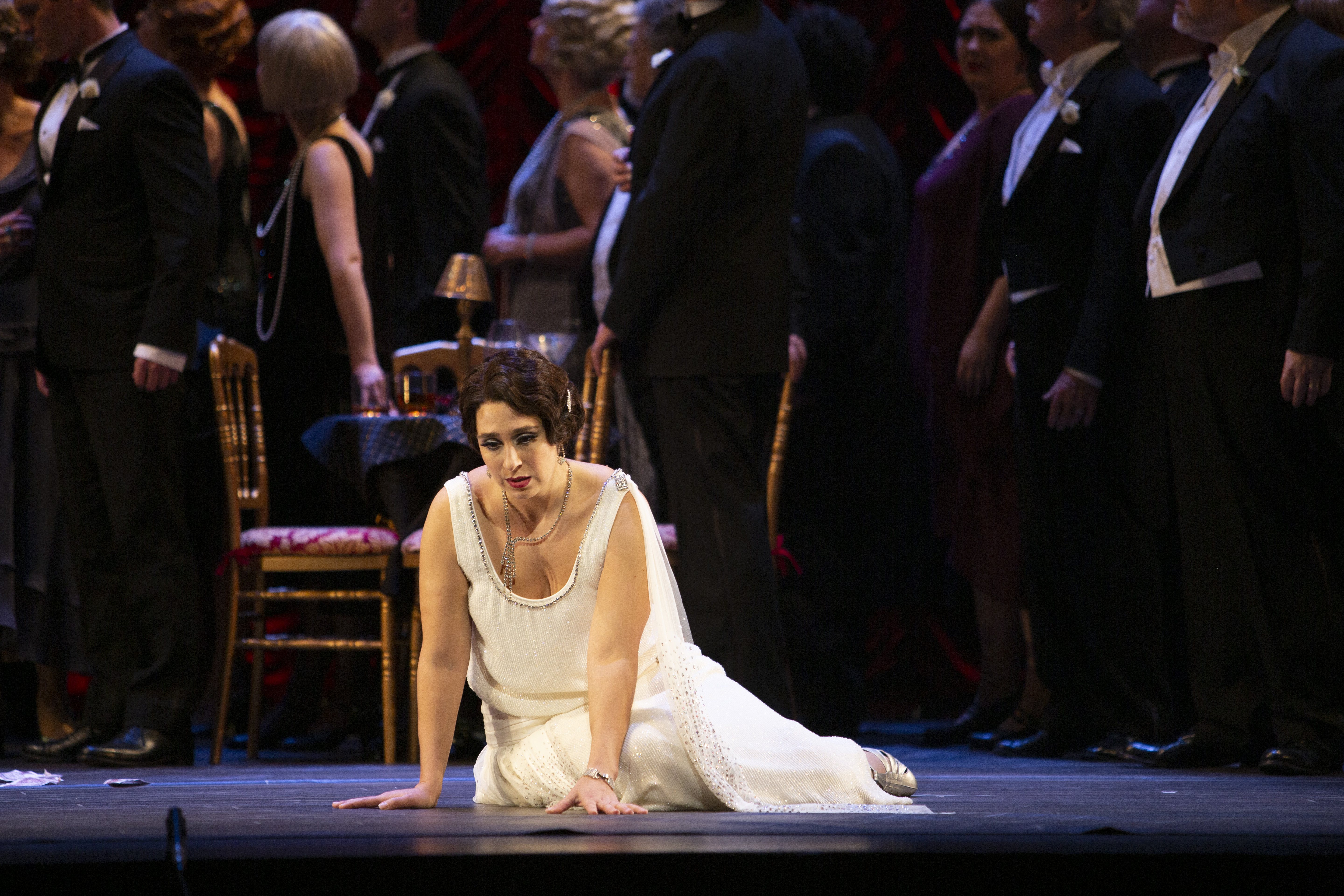
I have a confession to make. Before Vancouver Opera’s “La Traviata” I had never been to the opera. I didn’t know what to expect. I thought everything would fly right over my head. But that is, thankfully, not the experience I ended up having! I absolutely loved “La Traviata”.
The opera is, or at least should be, a visual, aural, and a social treat. I was worried it would be a bit too antiquated for my tastes and that I wouldn’t be able to relate to the production given the very traditional nature of this artform. VO’s choice of opera this year, however, made sure I didn’t have to wrestle any such feelings of unrelatability. Giuseppe Verdi’s “La Traviata” premiered in Venice in 1853. It was inspired by Alexandre Dumas’ 1848 romantic novel, “La Dame aux Camelias”, which tells the story of Violetta, a prostitute- a socialite, a courtesan, a lady of the night, a free woman – a fallen woman (la traviata). Violetta relishes her freedom and is content with her perpetual quest for physical pleasure. That all goes out the window when she meets Alfredo, a man of “respectable” societal bearings. The two fall in love and shack up in the countryside, away from the prying eyes of societal judgment. Enter Alfredo’s father who persuades Violetta to release Alfredo from her “bewitching” grasps. Violetta struggles with her ensuing sacrifices and discovers truly, and to her own detriment, what her standing in society entails. According to the very informative program that was distributed at the event, I was fascinated to learn that Dumas and Verdi had relationships with prostitutes which is what drove them to tell the stories of so-called “fallen women”. They were the true, OG male feminists. Their empathy for prostitutes was considered quite gauche for their times but fits right in with the 2019 audiences. “La Traviata’s” strong feminist themes make it a natural choice for a contemporary audience. In fact, the opera is said to have been the inspiration behind films such as “Pretty Woman” and “Moulin Rouge.”

Operatic singing is extremely emotional. It amplifies sorrow and romance a hundred-fold like perhaps no other artform can. The strong performances in “La Traviata” stay true to this. Emily Dorn as Violetta is strikingly beautiful in 1920s Parisian garb and her singing moves you from joy to tears as the story progresses. Dorn goes from the fun party girl to a foolish woman in love to an anguished woman in love and finally to tragically ill with grace but always emphatically. Andrew Haji as Violetta’s lover, Alfredo, is strong and passionate, while it is Alfredo’s father played by Chenye Yuan who steals the show with his towering vocals.The scenes with the Parisian partiers add lush levity to the opera and help balance out the heavy emotions. Verdi’s compositions are hauntingly melodic and the live orchestration by the Vancouver Opera Orchestra brings the compositions to life with their world-class talents.
The director’s choice to set the opera in 1920s Paris gives the production a very glamorous feel which is especially reflected in the beautiful set with its large, shuttered Parisian windows, a grand staircase, red pleated curtains and velvet chaise longues. The costumes too take full advantage of the era’s flapper fashions and the colour palette of the collective wardrobe recreates the time impeccably. We are transported so vividly to 1920s Paris that I got major Gertrude Stein salon vibes and Josephine Baker feels throughout.
“La Traviata” holds your attention for the entire 2.5 hours. It is beautiful and romantic. The creators have managed to stage a 19th-century tale while making it relevant for our current digital age audience. This is an admirable feat in itself and a wonder to witness.
Get your tickets here!
Prachi Kamble
